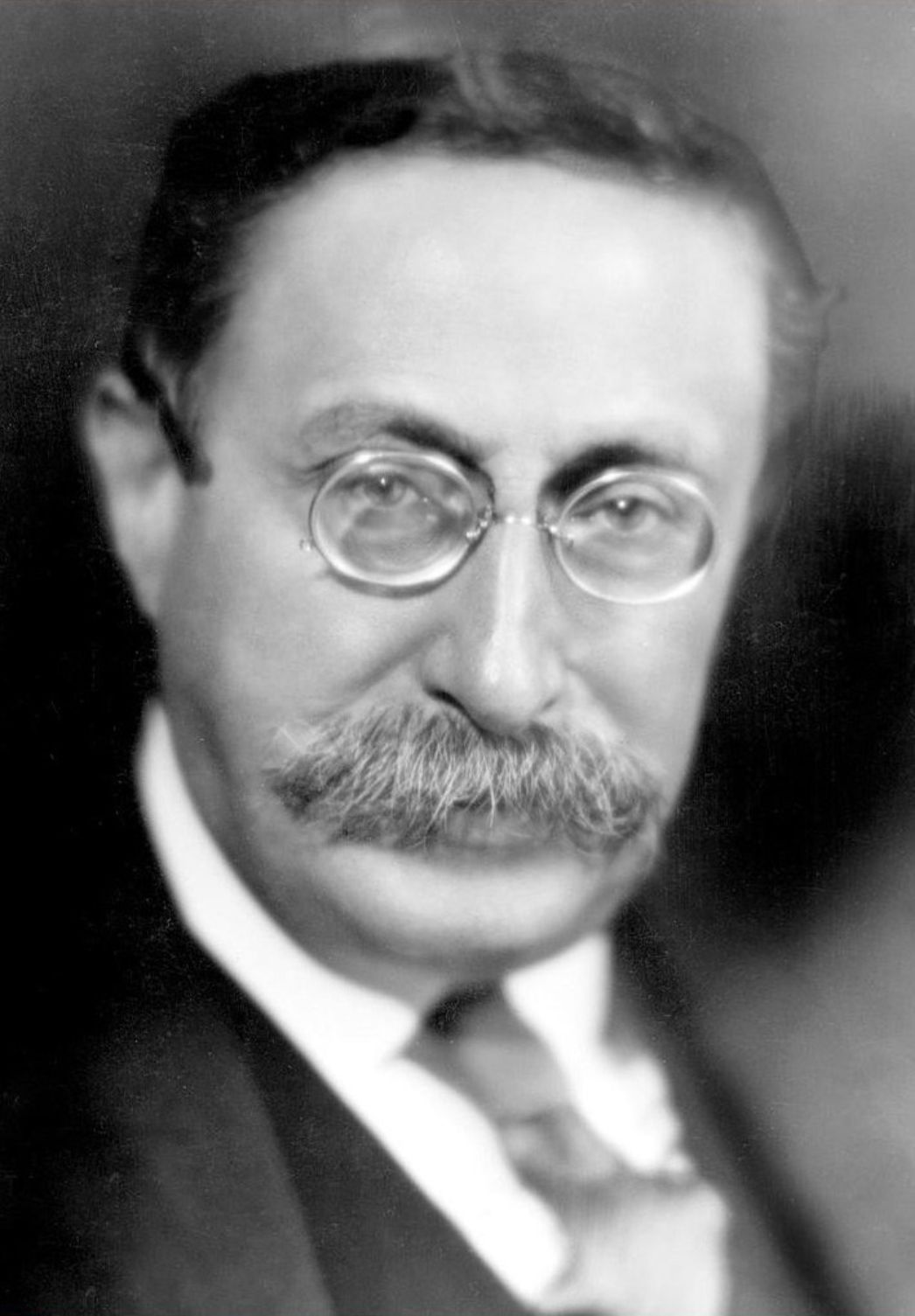
Léon Blum was born 9 April 1872 in Paris, the son of a wealthy Jewish family. After completing a law degree, he established himself as a literary and drama critic. In 1895, he took a position in the council of state. In 1896, initially without an author name, Léon Blum published his Nouvelles conversations de Goethe avec Eckermann ("New Conversations between Goethe and Eckermann"), a fictional continuation of Goethe’s conversations with his secretary about literature and socialism up to the present. As a lawyer in the Dreyfus Affair, he demanded an appeal of the proceedings against the wrongly demoted Jewish officer Alfred Dreyfus. With his friend Jean Jaurès, Blum founded the French Socialist Party in 1902. Following Jaurés’s murder in 1914, he came to be the main force behind the party. Beginning in 1921, he was the official party leader and at the same time the responsible publisher of the party newspaper La Populaire. On 4 July 1936, Blum became the prime minister of the “People’s Front Government”, which consisted of socialists and radical socialists and was tolerated by the communists; among the changes he implemented were the paid vacation and the forty-hour week. In June of 1937 he was forced to resign.
Under the Vichy government, Blum was interned and in the Riom trial he was charged with being the key person responsible for France’s entry into the war: his skilled defence became legendary. From the end of March 1943 to April 1945 he was interned, along with Georges Mandel, by the SS in Buchenwald’s
In the winter of 1945, the socialist Blum was sent as a special envoy of France to Washington. In November 1946, he was the chairman of UNESCO’s programme committee. After Charles de Gaulle’s resignation, Léon Blum established the interim cabinet. In the last year of his life, the statesman and essayist championed a humanistic socialism with a European perspective.
Léon Blum died near Versailles on 30 March 1950.


